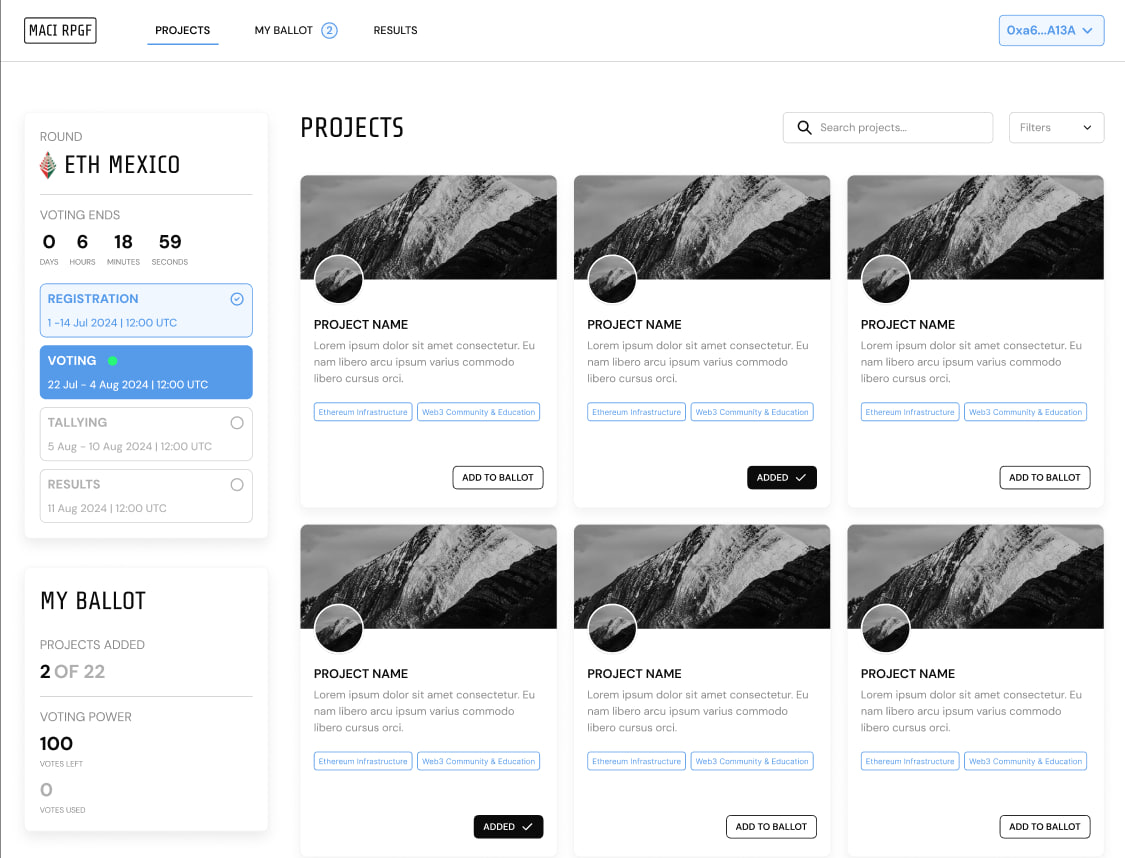2024 Q2 Review
Greetings anon,
Glad to have you here! It's that time of the year where we have a few MACI roadmap updates to share. We’re going to take a moment to look at what we accomplished in Q2, as the most active project in the entire PSE GitHub org.
Before we start, we would like to express our gratitude to all our collaborators and contributors to the MACI protocol.
Q2 in review
In our q2 roadmap, we aimed at a few major Q2 goals that all tied together:
✅ MACI-RPGF
A lot has happened with MACI-RPGF this last quarter. Much time has been spent improving the product in order to provide a more functional and stable product with a better overall user experience.
PSE's design team came up with a beautiful design that will soon be merged into the stable version of the code. We are looking forward to implementing this major update and are excited for you to try it!

On the outreach and support side, we also engaged with several communities to run a round using MACI-RPGF. There are three rounds ongoing with EthMexico, ETH Tegucigalpa and Cryptoversidad. Our developers have been working closely with their development teams to deploy and run MACI-RPGF. We look forward to supporting them throughout their rounds and helping facilitate the distribution of funds directly into community members building amazing things in the Ethereum ecosystem.
✅ MACI Coordinator Service
The use of a Coordinator Service would greatly simplify the operation requirements when running MACI. To better support communities running MACI polls, whether as a QF round or a simple voting application, the team has prioritised the development of a Coordinator Service that can be used by any Round Operator.
In the last three months we successfully completed the first iteration of a proof generation service, which can be used to more easily finalise MACI polls. Additionally, work on a frontend dashboard has started. This dashboard can be used to more easily deploy contracts in a customisable way via an intuitive user interface.
✅ MACI Core Protocol Improvements
To achieve our Q2 goal of “Unconditional Privacy" we worked with the 3327 team (responsible for the ElGamal on MACI implementation) to come up with an effective solution and a better user experience that we could have hoped for. More on this can be found in our blog, but we have now started this grant work and are looking forward to seeing this in action in the coming months.
We have also been busy working on some new features and improvements to the codebase. It is now easier than ever to deploy MACI instances, as well as re-use certain smart contracts that have already been deployed and will not need changing.
Furthermore, we have managed to slightly reduce the costs for users by removing unused features, as well as using different and more optimised data structures. This brought several improvements, such as allowing for concurrent polls to be run from one MACI instance (finally!).
Finally, we worked with the community to integrate a number of different gatekeepers:
- Semaphore
- Gitcoin Passport
- Zupass - thanks gasperpre for the implementation
You can now use these (plus more) to gatekeep signups to MACI and shoot down those sybil attacks!!.
Stay tuned for an upcoming MACI release where all these efforts can be seen in action.
✅ Support Gitcoin Allo protocol integration
Throughout May and June, Gitcoin and Nick Lionis in particular worked hard to integrate MACI in the Allo Stack. You can find the code on their GitHub. The stack will soon be used in production by Gitcoin to support running grant rounds privately.
We are excited to see rounds being run with this integration, and look forward to continue to collaborate with the Allo team to improve MACI and integrate new versions into their stack.
✅ Support ETHDam hackathon QV round
In April, we successfully supported the ETHDam team to run a private quadratic voting (QV) round for the ETHDam hackathon, powered by MACI. Conference attendees used clr.fund to vote on their favourite hackathon projects in order to allocate $10,000 to projects building novel privacy and security solutions in the ecosystem.
✅ MACI starter kit
We've teamed up with Buidl Guild and the Scaffold-ETH team to build a MACI starter kit: a web app that integrates MACI in order to run polls. Thanks to Yash's efforts we now have a ready-to-use MACI starter kit. This has already been used in two hackathons (as an example here's an Eth Berlin project) to quickly prototype projects using MACI. We thank Yash for all his effort with this and are looking forward to see what the community will build with it.
That was a lot, and there’s more to come! Be sure to keep an eye out here for our next post where we look forward to what is coming for MACI in Q3, 2024.